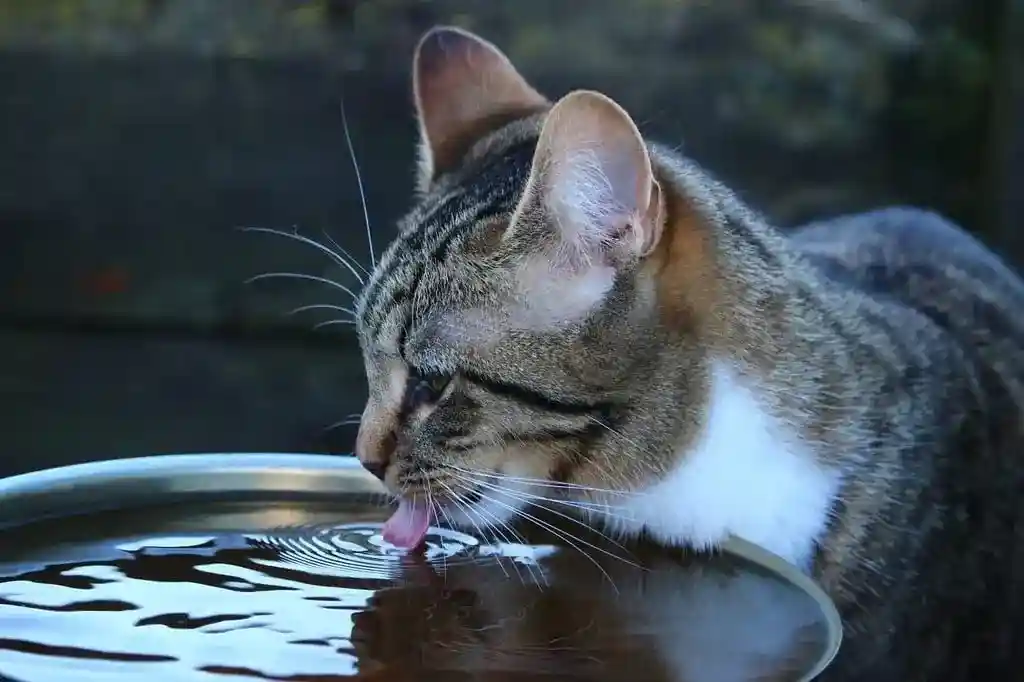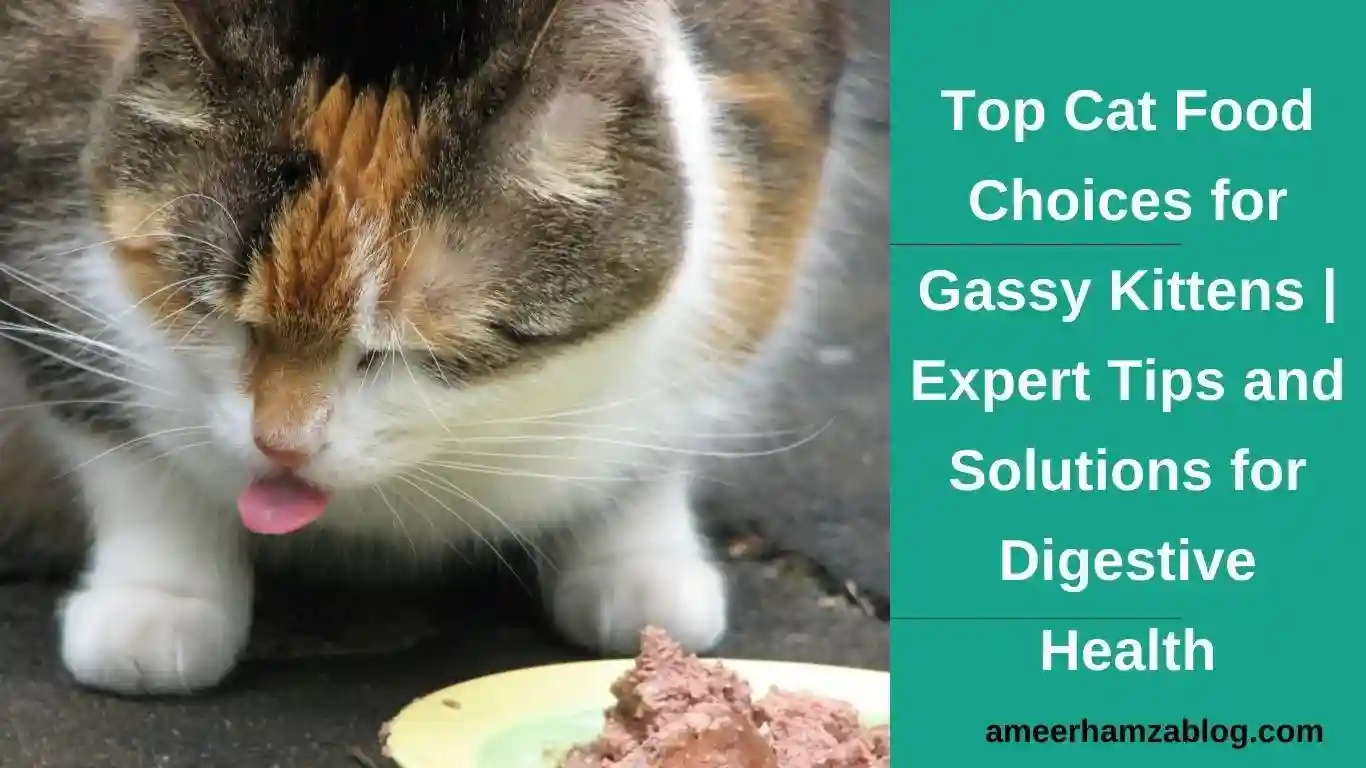How to choose cat food for Gassy Kittens?
Choosing the correct cat food for gassy kittens is essential for controlling their digestive health and keeping them comfortable. Kittens often get gas caused by food sensitivities, low-quality foods, or rapid dietary changes. Understanding How to choose cat food for Gassy Kittens? will help them have less gas and feel better overall. In This blog we will provides helpful tips and solutions to help you select cat food that supports your kitten’s digestion and prevents gas. By focusing on high-quality ingredients and gradual transitions, you can address common digestive issues effectively.
Choosing the Right Cat Food for Gassy Kittens
Wet vs. Dry Food
Feeding gassy kittens, It can be tough to pick between wet and dry food. They each have their pros and cons.
Wet Food:
- Advantages: More relaxing simpler to digest, and higher moisture content.
- disadvantages: Usually more costly, with a shorter shelf life after opening.
Dry Food:
- advantages: include a longer shelf life, lower cost, and dental hygiene
- disadvantages: Lower moisture content, may be harder to digest.
Recommendations for Gassy Kittens: Wet food is generally recommended for a gassy kitten as it contains more moisture which helps pass gas and easier digesting. Look for premium quality with some ingredients, however, if you like dry food.
Grain-Free Cat Food
There is good reason why grain-free diets have become more and more popular. It could decrease your flatulence and myriad of other intestinal issues.
Benefits of Grain-Free Diets:
- Easier Digestion: Cats that have a lower tolerance to grains will present with gas and bloating.
- High Protein Content: Foods free of grains usually have higher protein contents, which promote general health.
Best Grain-Free Options on the Market:
- Blue Buffalo Wilderness: this is a high-quality, grain-free formula.
- Grain-Free by Merrick: Offering various flavors, this one is full of the best nutrition and high-protein values.
Limited Ingredient Diets
Because they contain less possible irritations, limited ingredient diets can help gassy kittens.
How Limited Ingredient Diets Help with Gas: These diets reduce the likelihood of stomach pain by emphasizing less foods.
Top Brands and Products:
- Natural Balance L.I.D : A well-known company that provides a range of solutions for restricted ingredients.
- The Instinct Limited Ingredient Diet: offers easy recipes that call for little ingredients.
Reading Cat Food Labels
Identifying High-Quality Ingredients
Knowing your cat food ingredients starts in deciphering a pet foods labelling
What to Look for on the Label:
- Named Protein Sources: Ingredients such as “salmon” or “chicken” should be included first.
- Whole Ingredients: Avoid using by products and instead go for whole fruits and vegetables.
Ingredients to Avoid:
- Fake colouring and preservatives : these may result in digestive difficulties.
- Fillers: some ingredients, like soy (a.k.a. “vegetable protein”), wheat and corn can send that digestion system into quite a spin
Understanding Nutritional Information
One of the best things you can do to help combat your kitten being a very gassy kitty is simply understanding what information on cat food labels mean so that way, you are sure all of his dietary needs are met!
Reading and Understanding the Nutritional Information
- Protein Content: To help in digestion and growth, aim for a high protein content.
• Fat content: The fat should be well balanced for energy.
AAFCO Certification: It is a very important point so as to ensure that the food meets standards with regards nutrition, if you see AAFCO approval it indicates compliance but more on this ahead.

Transitioning to a New Cat Food
How to Switch Foods Safely
This slow process helps ensure you prevent future gastric issues when transitioning to a new diet.
Step-by-Step Guide to Transitioning:
- Start Gradually Blend a really small amount of the new food into the old
- Increase Gradually: Increase the new food and decrease the old over the course of a week.
- Monitor: Pay attention to how your kitten reacts to the novel food.
don’t miss our this article on The Easiest Kitten Feeding Schedule You Need to Follow!. Create a schedule for you feline friend that supports their health and development!
Common Challenges During Transition
How to Handle Food Refusal:
- Have patience: It may take some kittens some time to become used to new tastes.
- Combine with their favourite foods: This may persuade them to try the new dish.
Addressing Digestive Issues During Transition:
- Pay Close Attention: Keep an eye out for any indications of discomfort or elevated gas.
- Speak with your veterinarian: Consult a professional if problems continue.
Tips for Reducing Gas in Kittens
Feeding Smaller, More Frequent Meals
Gas can be decreased by feeding smaller meals more frequently.
Benefits of Smaller Meals:
- Easier Digestion: A small kitten digestive system will better process smaller meals.
- Aids in Avoiding Gas and Bloating: Helps prevent overeating.
How to Adjust Feeding Schedules:
- Set Regular Times: It’s important to be consistent.
- Divide Daily Portion: Make smaller portions out of the entire daily amount of food.
Encouraging Slow Eating
Kittens that eat too quickly can swallow air, leading to gas.
Tips and Tools to Slow Down Eating:
- Use puzzle feeders: These slow down and increase the difficulty of eating.
- Feed Small Portions: To avoid gulping, give smaller portions more frequently.
Benefits for Digestive Health:
- Reduce Gas: Eating more slowly means less air is consumed.
- Improves Digestion: Digestion Reduces for Better Food Breakdown.

Ensuring Fresh Water Availability
Another thing that is essential to your kittens health digestion wise? Water.
Importance of Hydration:
- Supports Digestion: But water actually plays a part in the digestive process, breaking down food and allowing your body to absorb nutrients.
- Reduces Constipation: Aids in managing motions of the stomach.
Tips for Keeping Water Fresh and Appealing:
- Use a Fountain: Cats are often attracted to running water.
- Change Regularly: Ensure water is fresh by changing it frequently.
Regular Veterinary Check-ups
Regular visits to the veterinarian can help with your kitten’s health assessment.
Importance of Routine Vet Visits:
- Early Detection: Identifies potential health issues early.
- Nutritional Advice: Your vet can also give you help to create the best diet for your boxer.
What to Discuss with Your Vet:
- Diet: Talk about your kitten’s diet and any digestive issues.
- Health Concerns: Mention any signs of gas or discomfort.
Frequently Asked Questions
When you change food, how long before things start to get better?
- Typically, you should see improvement within a week or two. If not, consult your vet.
Can treats cause gas in kittens?
- Yes, especially if they contain fillers or artificial ingredients. Opt for high-quality, natural treats.
Is wet food better than dry food for gas issues?
- Generally, yes. With wet food, the higher water content and digestibility of the protein can result in less gas. How do I train my kitten on a new diet?
What can i do to get kitten used to the new food?
- Slowly change over their usual food, watch for any reactions and get in touch with your vet if you need help.
Conclusion
You need to be extra cautious while feeding gas-prone kittens. However, by selecting the appropriate food, transitioning slowly and watching for a response in your kitten you can make GI health better. Don’t forget that each kitten is unique and what works for one may fail to work on another.
Always be patient and consult your vet when needed. Your kitten’s health and comfort are worth the effort! and please give your opinion in a comment section about our blog. Is it helpful for you? or not. thanks!

